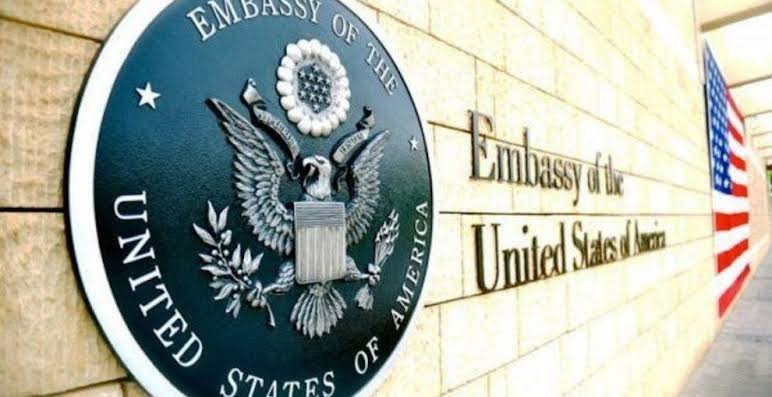The United States Mission in Nigeria has addressed recent concerns over its decision to reduce visa validity for most Nigerian nonimmigrant applicants, emphasizing that the move is not politically driven and unrelated to Nigeria’s foreign alliances or immigration policies.

In an official statement released on Friday, the U.S. Mission stated that the change is part of a global review process aimed at improving visa regulations based on technical and security considerations, rather than a response to Nigeria’s diplomatic posture.
“The U.S. Mission in Nigeria wishes to clarify misconceptions surrounding the recent reduction in visa validity for most nonimmigrant U.S. visas issued in Nigeria and other countries. This decision is not influenced by any country’s policies on deportees, adoption of e-visas, or affiliations with international groups like BRICS,” the statement read.
The embassy emphasized that the adjustment is a result of routine assessments of visa reciprocity arrangements and is intended to strengthen the integrity of the U.S. immigration system.

“We deeply value our long-standing partnership with Nigeria and remain committed to working collaboratively with both Nigerian citizens and government officials to meet necessary criteria and maintain safe, legal, and mutually beneficial travel between our countries,” the statement added.
The clarification comes amid public speculation that the shortened visa validity was connected to Nigeria’s strengthening ties with BRICS nations or recent immigration policy decisions. Some had suggested that the measure was retaliatory.
Earlier in the week, the U.S. Embassy had announced that effective immediately, non-immigrant and non-diplomatic visas issued to Nigerians would now be single-entry and valid for just three months—down from the previous five-year multiple-entry duration. However, existing visas issued before July 8, 2025, remain unaffected and valid for their original terms.
In response to the swirling rumors, the Nigerian Presidency dismissed claims that it had stopped issuing five-year visas to U.S. citizens. In a statement signed by Bayo Onanuga, Special Adviser to President Bola Tinubu on Information and Strategy, the government labelled such reports as “fake news.”
According to Onanuga, President Tinubu’s administration has instructed full implementation of all bilateral agreements and a strict observance of reciprocity in diplomatic engagements.

Meanwhile, diplomatic sources revealed to TheCable that Nigeria’s refusal to sign an agreement allowing the U.S. to deport asylum seekers to its territory was a significant factor behind the previous visa restrictions imposed by former U.S. President Donald Trump.
Reportedly, the U.S. had been pressuring multiple nations—especially in Africa and Central America—to temporarily host migrants and asylum seekers whose applications were pending in the U.S., a process that could take years to resolve. Nigeria, however, refused to participate.
This position was reinforced by Nigeria’s Foreign Affairs Minister, Yusuf Tuggar, during an interview on Channels Television’s Politics Today program. Tuggar stated that Nigeria has too many domestic challenges to serve as a holding ground for deported foreign nationals.

“The U.S. is mounting considerable pressure on African countries to accept Venezuelans deported from the U.S., including ex-prisoners. For us, that’s unacceptable. We already have 230 million people and enough of our own issues to address,” he said.
Tuggar also clarified that the recent U.S. visa measures were unlikely linked to Nigeria’s participation in the BRICS summit, noting instead that the country is more focused on deepening economic ties with the U.S.
“We are looking to build strategic partnerships with the U.S., especially in sectors like gas, critical minerals, and rare earths that are vital to American industries,” the minister added.




